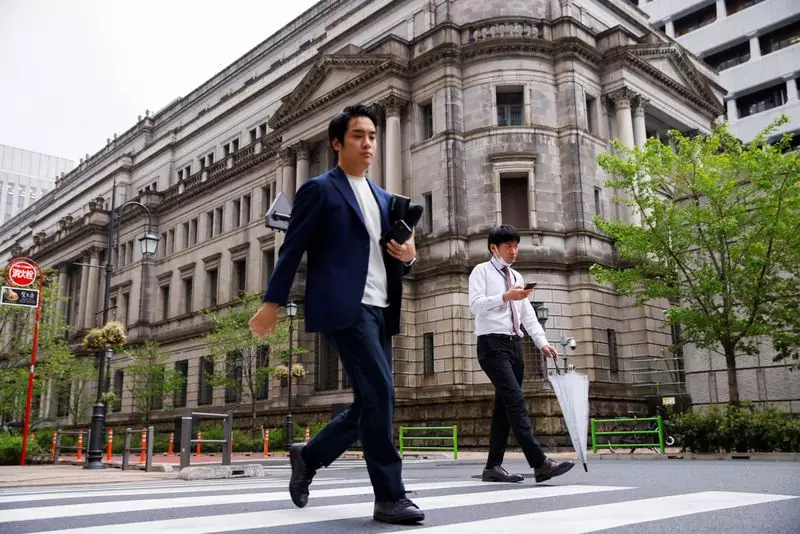As Japan grapples with ongoing economic challenges, the discussions surrounding the Bank of Japan’s (BOJ) monetary policy have intensified. Recently, Takeshi Shina, a prominent figure in the country’s largest opposition party, the Constitutional Democratic Party of Japan, made a compelling case for increasing interest rates to address the adverse effects of sustained monetary stimulus. His arguments not only reflect growing discontent with the current state of the yen but also emphasize the necessity for a strategic shift in the central bank’s approach.
In a significant interview, Shina posited that the BOJ should raise its short-term interest rates from the current 0.25% to at least 1%. This proposed increase is intended to counteract what he perceives as an excessively expansive monetary policy that has led to a depreciation of the yen. Shina pointedly articulated that the disparities between U.S. and Japanese interest rates are a primary contributor to the yen’s decline, which in turn exacerbates the cost of living for ordinary citizens. By normalizing monetary policy, Shina argues, not only would the integrity of the yen improve but also the overall economic landscape of Japan.
Shina is not alone in his critique. With the yen’s value falling by approximately 30% against the dollar since 2020, the negative ramifications of such declines are palpable. Rising import prices squeeze household budgets, particularly affecting those outside of Japan’s large manufacturing sector, which seems to benefit from cheaper currencies. As such, the disconnect between economic realities and monetary policy has opened a Pandora’s box of dissatisfaction among the populace, creating a fertile ground for political discourse.
Shina’s statements come against the backdrop of a recent electoral victory for the CDPJ, which has amplified calls for reform in Japan’s economic management. His concerns echo a broader fear that the BOJ’s approach under former Governor Haruhiko Kuroda has inadvertently stunted potential growth by concentrating too heavily on ultra-easy monetary policies that have impacted financial institution profitability and overall market dynamics. The need to pivot towards a more stringent monetary environment speaks volumes about the pressures faced by lawmakers in balancing economic growth with sustainable fiscal policies.
In fact, Shina’s insistence that the BOJ should advocate for a lower inflation target provides a glimpse into his vision for a more flexible monetary policy framework. He argues that reducing the emphasis on a strict 2% inflation goal would allow for a more adaptive policy that responds better to real economic conditions. This shift could empower the BOJ to engage in a more pragmatic approach to interest rate adjustments, harmonizing monetary policy with actual wage growth—a critical element for ensuring long-term economic health.
The complexities of global economic relationships cannot be overlooked when discussing the yen’s decline. The anticipation of U.S. President-elect Donald Trump’s policies has contributed to the rising dollar, escalating expectations for inflation, and impacting the Federal Reserve’s interest rate trajectory. This international interplay illustrates the vulnerability of Japan’s economy to global economic currents, making it imperative for domestic policymakers to formulate responses that safeguard the nation’s financial stability.
Shina’s proposals are underscored by the urgent need for the BOJ to consider the socio-economic realities facing its population, particularly in light of recent trends in inflation and living costs. By articulating a clear strategy for interest rate normalization, the BOJ could alleviate the pressure exerted by a weak yen, thereby supporting the purchasing power of everyday citizens.
As the BOJ prepares for its upcoming monetary policy review, Shina’s call for sustained incremental increases in interest rates resonates with growing segments of the Japanese population concerned about the economic status quo. It is crucial for the central bank to reflect not only on financial metrics but also on the lived experiences of Japanese citizens when creating its policy framework.
Japan is at a pivotal moment in its economic journey. The call for a prudent and gradual adjustment of interest rates is not merely an economic directive; it is a necessary step towards restoring confidence in the yen, stabilizing living costs, and fostering an environment conducive to growth. The interplay between political voices and the approaches taken by the BOJ will undoubtedly shape the future trajectory of Japan’s economic landscape. The upcoming months will be critical in determining whether Japan can successfully navigate this path toward monetary stability and economic resilience.

